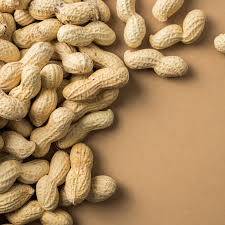The Importance of Eating Peanuts: A Nutritious Powerhouse for Health
Peanuts, often overlooked as a simple snack, pack a powerful punch when it comes to nutrition. Rich in healthy fats, protein, and a range of essential vitamins and minerals, peanuts can be a valuable addition to any diet. Whether eaten as a snack, added to dishes, or enjoyed in the form of peanut butter, these legumes offer numerous health benefits that make them an important part of a balanced lifestyle.
Nutritional Benefits of Peanuts
One of the primary reasons to include peanuts in your diet is their rich nutritional profile. Peanuts are an excellent source of plant-based protein, providing about 7 grams of protein per ounce. This makes them a great option for vegetarians and those looking to add more protein to their diet without relying on animal products. Protein is essential for muscle repair, immune function, and overall body maintenance.
In addition to protein, peanuts are packed with healthy fats, specifically monounsaturated and polyunsaturated fats. These heart-healthy fats help reduce bad cholesterol levels (LDL) in the body, which can lower the risk of heart disease. Replacing saturated fats with these healthier options has been shown to support cardiovascular health, making peanuts a great choice for those looking to maintain a healthy heart.
Peanuts are also a good source of essential vitamins and minerals. They contain vitamin E, an antioxidant that helps protect cells from damage and supports skin health. Additionally, peanuts are high in B-vitamins, such as niacin, thiamine, and folate, which play a vital role in energy production, brain function, and red blood cell formation. Peanuts are also rich in magnesium, phosphorus, and potassium—minerals that contribute to healthy bone development, muscle function, and electrolyte balance.
Health Benefits of Eating Peanuts
Beyond their impressive nutritional content, peanuts have been linked to various health benefits. For one, consuming peanuts may aid in weight management. Despite being calorie-dense, studies suggest that peanuts can help curb hunger and promote feelings of fullness. This is likely due to their high protein and fiber content, which slow down digestion and keep you satisfied longer. Research also indicates that incorporating peanuts into the diet may reduce the risk of obesity, as they tend to have a low glycemic index, meaning they do not cause significant spikes in blood sugar levels.
Peanuts may also play a role in preventing chronic diseases. Regular consumption of peanuts has been linked to a reduced risk of type 2 diabetes. The high levels of monounsaturated fats and fiber help improve insulin sensitivity, which is key to preventing and managing diabetes. Moreover, peanuts have been shown to have anti-inflammatory properties, which can help reduce the risk of conditions like arthritis, cardiovascular disease, and even certain cancers.
Peanuts are also a good source of antioxidants, such as resveratrol, which is the same compound found in red wine. This antioxidant has been shown to offer anti-aging benefits and improve overall heart health by reducing inflammation and oxidative stress.
Conclusion
Incorporating peanuts into your diet is a simple yet effective way to improve overall health. Their rich protein content, healthy fats, and wealth of vitamins and minerals make them a valuable addition to any balanced diet. From supporting heart health to promoting weight management and reducing the risk of chronic diseases, the benefits of eating peanuts are undeniable. Whether you enjoy them roasted, in butter form, or as part of a meal, peanuts are a delicious and nutritious food that should not be underestimated.



No comments yet
Be the first to share your thoughts!